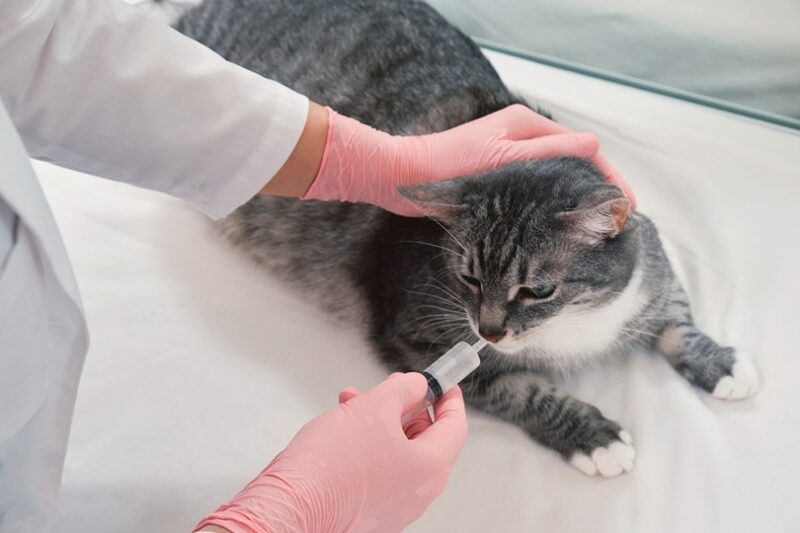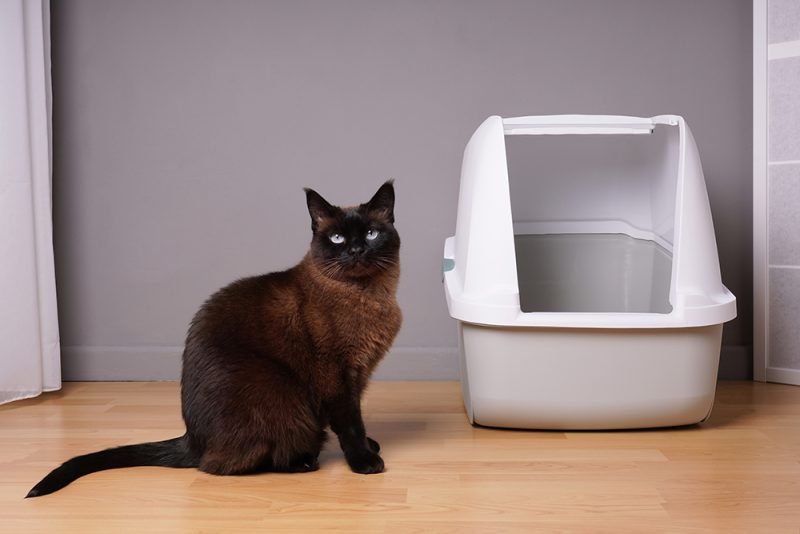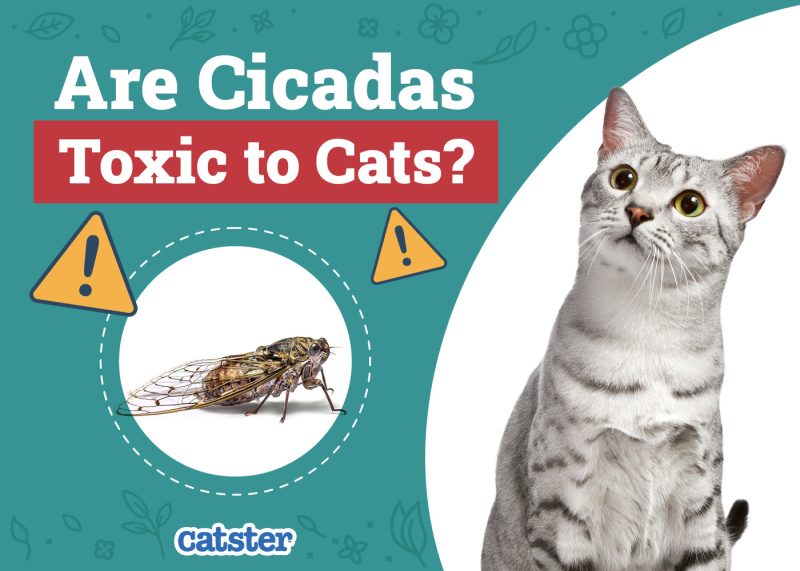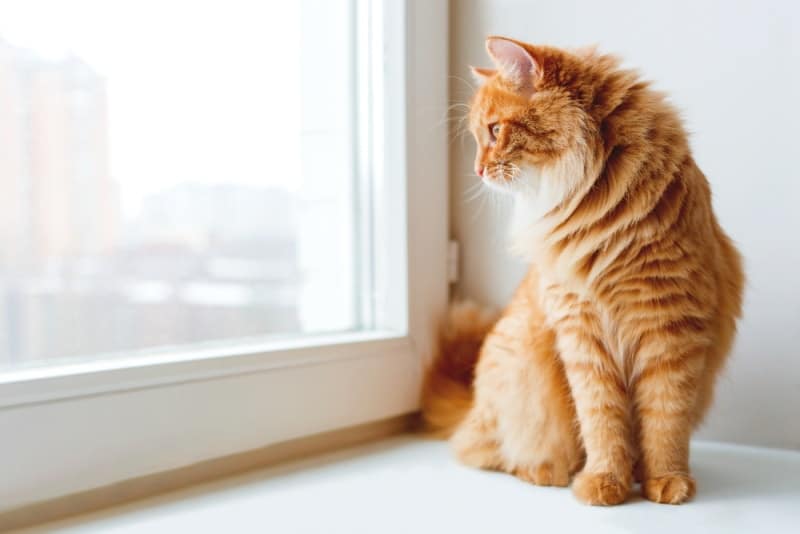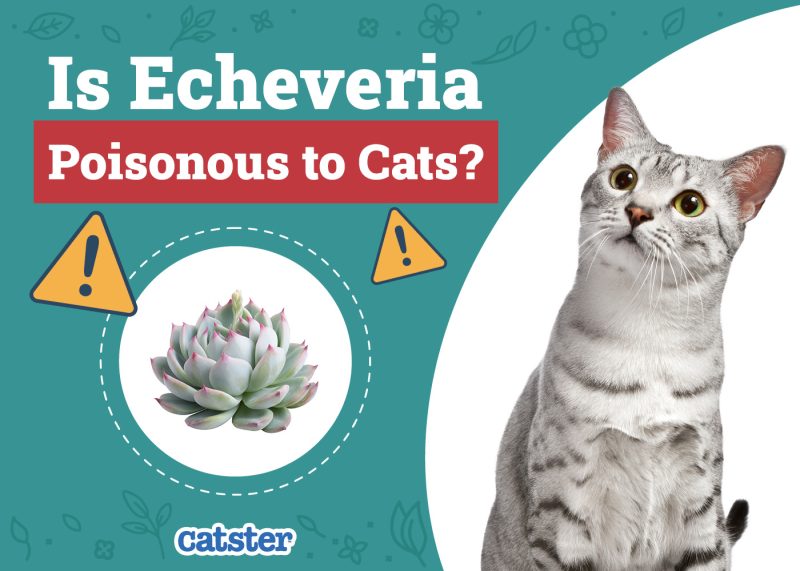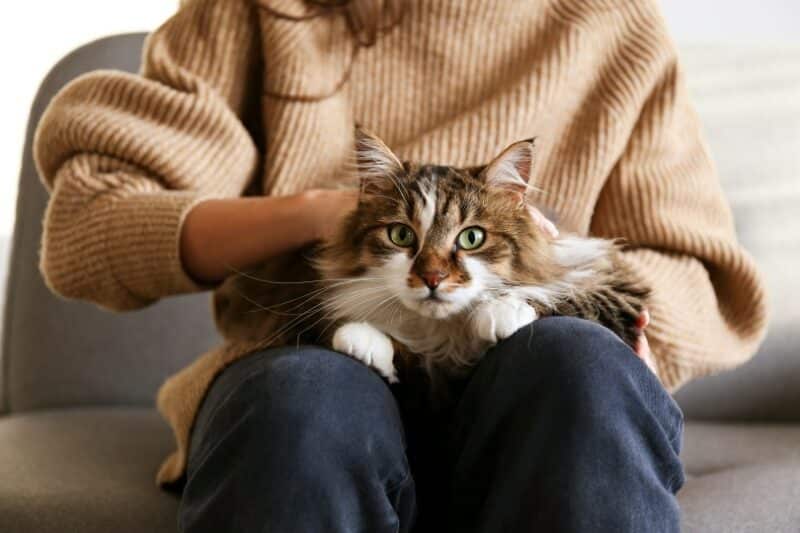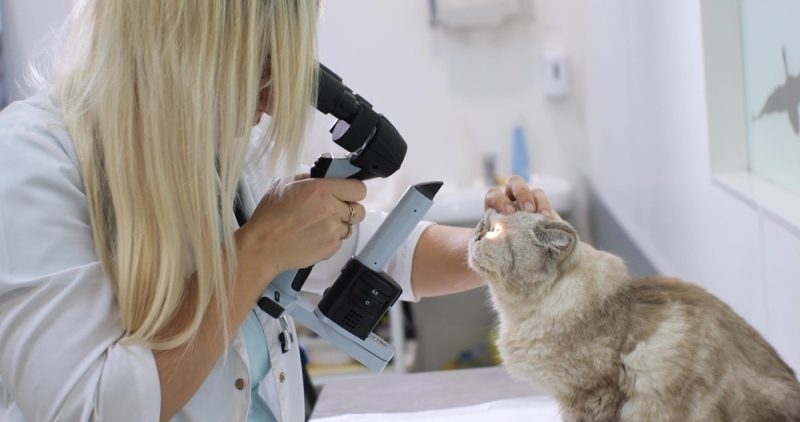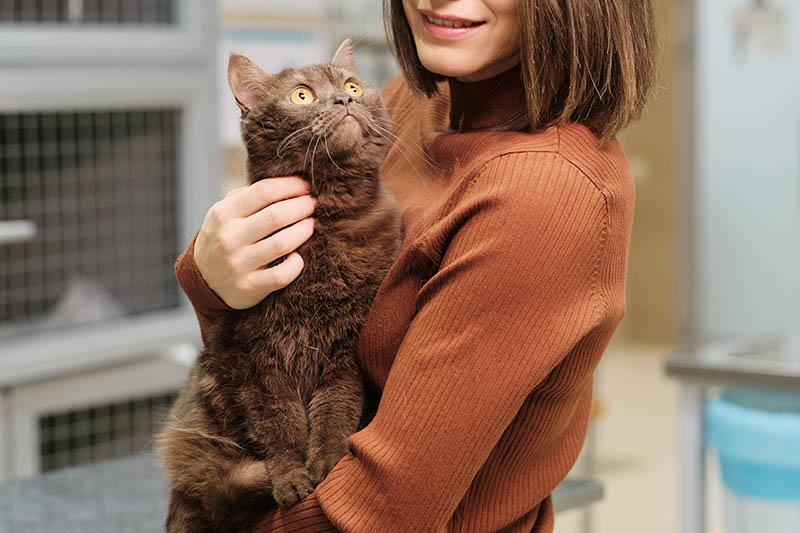In this article
If you take your feline fur baby to the veterinarian because they are feeling bad, a veterinarian will probably give them an examination before sending them home with appropriate medication. If they have an infection, the veterinarian might prescribe a medication called Clavamox. But what is Clavamox? What is it used for, and how is it given? We’ll answer those questions and discuss how Clavamox helps cats.

Key Points of Clavamox
- Clavamox is one of the brand names of an antibiotic called Co-Amoxiclav.
- Co-Amoxiclav is a mixture of the antibiotics amoxicillin and clavulanic acid. It is a medication that is also used in human medicine.
- Clavamox is available as two oral treatments. One is a chewable tablet, and the other is a liquid.
- Clavamox chewable tablets are formulated to be palatable, making them easier to give to your cat.
- Clavamox is produced by the pharmaceutical company Zoetis, formerly known as Pfizer.
- Clavamox, like all antibiotics, must be prescribed by a veterinarian.
- Clavamox tablets are available in 62.5 mg, 125 mg, 250 mg, and 375 mg, and the liquid drops are 15 ml of 62.5 mg/ml solution.
- Cats would typically be prescribed 62.5 mg tablets or liquid drops.
- Clavamox is licensed to treat skin infections and urinary tract infections in cats.
- Clavamox is licensed for use in both cats and dogs.

Uses of Clavamox in Cats
Clavamox is a combination of amoxicillin and clavulanic acid, which are two types of antibiotics. It, therefore, provides cover against a broad spectrum of bacteria, making it an excellent choice for many common feline infections. The tablets or liquid drops should be given twice daily. They can either be prescribed following an injection of Co-Amoxiclav or as a standalone course.
Clavamox is licensed to treat infections caused by certain bacteria, including Pasteurella, Staphylococci, Streptococci, and E. coli. It can effectively treat most skin and wound infections and deeper soft tissue infections like cellulitis and abscesses. Clavamox is also a licensed treatment for urinary tract infections caused by E. coli.
While antibiotics should always be used responsibly, with the most potent or specialist antibiotics reserved for resistant infections, Co-Amoxiclav is often used as a successful first-line treatment for everyday infections.
How Is Clavamox Given to Cats?
Clavamox is an oral medication available as chewable tablets of various sizes and palatable liquid drops. The tablet sizes are 62.5 mg, 125 mg, 250 mg, and 375 mg, but cats would rarely be given anything other than the 62.5 mg size. The liquid contains 62.5 mg of Co-Amoxiclav per milliliter, meaning cats can have 1 milliliter per dose. Because the tablets are chewable, some cats will eat them as a treat out of your hand.
Similarly, the liquid drops are palatable, so administering the medication into their mouth should be easier and less traumatic. The fact that Clavamox may be easier to give to your cat makes it more likely they will finish the course, so the infection is more likely to resolve. The dose of Co-Amoxiclav for cats is 62.5mg per cat every 12 hours, equating to one 62.5 mg tablet or 1 ml of the liquid drops given twice daily.
As with any antibiotic, Co-Amoxiclav should be given as a course of treatment rather than a single dose. A course of Co-Amoxiclav should be continued for at least 5 days and ideally should not be stopped until 48 hours after signs have resolved. The course of treatment mustn’t exceed 30 days because it may not be safe and could lead to antibiotic resistance.
How Does Clavamox Work?
Clavamox is a combination of amoxicillin and clavulanic acid, which work together to kill bacteria. Many bacteria have developed an enzyme called Beta-Lactamase, which helps protect them from penicillin-based antibiotics. This protection is due to the Beta-Lactamase binding and inactivating the antibiotic. Therefore, on its own, amoxicillin is ineffective at fighting bacteria with these enzymes.
However, clavulanic acid inhibits the Beta-Lactamase enzyme, which clears the way for amoxicillin to bind to the cell wall proteins. By binding to and damaging the cell wall, amoxicillin can kill the bacteria by causing them to swell and burst. Clavamox is, therefore, a broad-spectrum antibiotic that is effective against many types of bacteria, including Gram-negative, Gram-positive, aerobic, and anaerobic.
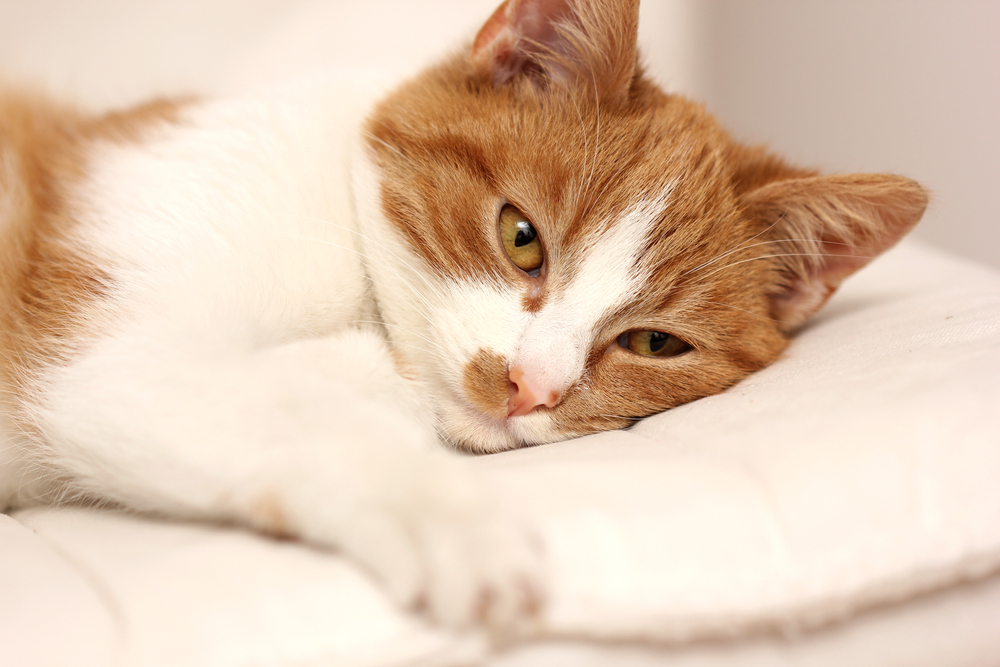
What Are the Side Effects of Clavamox in Cats?
The most important concern regarding the use of Clavamox, as with any penicillin-based medication, is the risk of allergic reaction. Because Clavamox is an oral medication, it requires handling by the pet parent and being consumed by the cat. Therefore, if either the cat or the pet parent has a known allergy to penicillin, Clavamox should be avoided altogether.
If your cat develops a possible allergic reaction to Clavamox, you should immediately contact a veterinarian. All medications have minimal risk of anaphylactic reactions; however, it is very rare.
Other rare side effects of Clavamox in cats include a reduction in appetite, lethargy, vomiting, and diarrhea. These side effects are very infrequent, but if your cat shows any possible side effects, you should inform a veterinarian. They can report any side effects to the manufacturer for investigation.
Is Clavamox Safe to Use With Other Medications?
Clavamox is not known to have a negative effect on other medications. Therefore, its use alongside other drugs is considered to be safe.
If you have any concerns about your cat, medications or health, we recommend you contact a vet directly.
If you need to speak with a vet but can't get to one, head over to PangoVet. It's an online service where you can talk to a vet online and get the advice you need for your pet — all at an affordable price!

When Shouldn’t Clavamox Be Given?
Clavamox may not be safe for pregnant or lactating cats. There has been insufficient testing to prove its safety, so use in these animals should be avoided. Because the kidneys remove Clavamox from the body, it should be used with care in cats with kidney failure. The decision to administer Co-Amoxiclav should be based on a culture and sensitivity test.
This involves a sample, usually a swab, taken from the infection site. Bacteria can be grown from the sample and their response to various antibiotics tested. This ensures that the most appropriate antibiotic is used and that the most potent and specialist antibiotics are reserved for the cases that need them. This responsible use of antibiotics helps prevent antibiotic resistance, which is a problem in human and veterinary medicine.
A veterinarian can prescribe Clavamox without performing a culture and sensitivity test, but only if its use is justified. The veterinarian will consider the signs and the findings from their examination before deciding which medication to prescribe.

Frequent Asked Questions
What is Clavamox used to treat in cats?
Clavamox is an antibiotic licensed to treat skin, soft tissue, and urinary infections caused by various bacteria, including Staphylococci, Streptococci, Pasteurella, and E. coli. It is commonly used for deep soft tissue infections like cellulitis and abscesses.
How long does Clavamox take to work in cats?
If your cat has been taking Clavamox, you should see an improvement in their signs within 3 days. If there has been no improvement, you should let a veterinarian know.
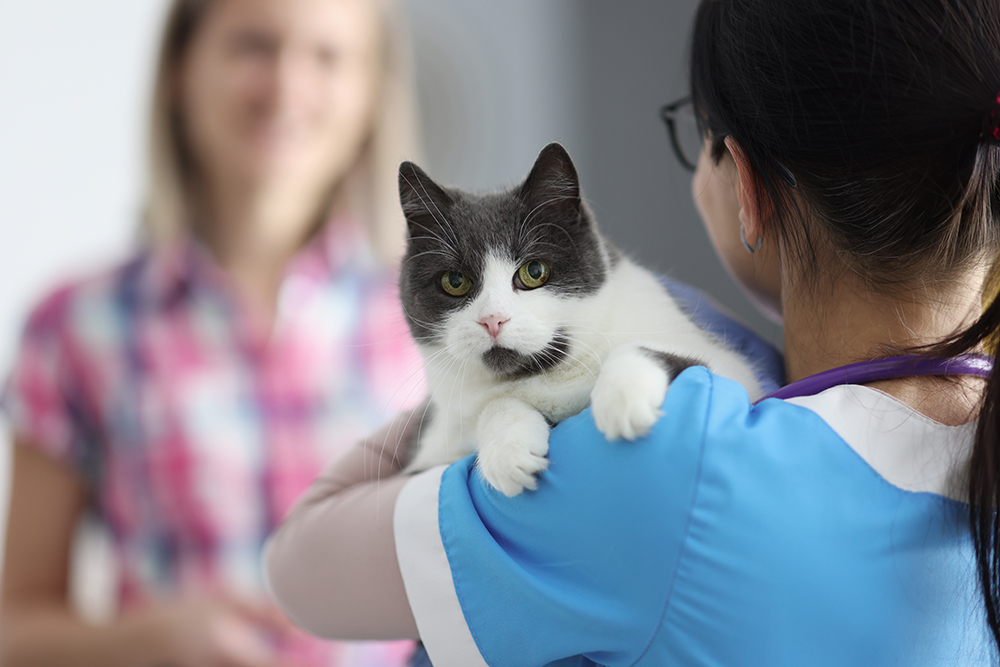
How long does Clavamox last in cats?
Each Clavamox dose, whether tablet or liquid, lasts for just over 12 hours. Therefore, Clavamox must be administered twice daily. A course of Clavamox is usually between 5 days and 2 weeks, but occasionally, the treatment can take longer. Clavamox should not be given for longer than 30 consecutive days.
Is Clavamox a strong antibiotic?
Amoxicillin and clavulanic acid work together to kill bacteria, making Clavamox a broad-spectrum antibiotic effective against a wide range of bacteria.

Final Thoughts
Clavamox is a penicillin-based antibiotic with Beta-Lactamase inhibitor activity from the additional clavulanic acid. It is a broad-spectrum antibiotic and is effective against many causes of skin, soft tissue, and urinary infections in cats. The tablets’ chewable nature and the liquid drops’ palatability make medicating your cat a little easier. This makes it more likely that your cat will receive the correct dosage and complete the entire course of medication. However, although Clavamox is a very effective antibiotic, it should always be used responsibly and only under veterinary instruction to reduce the risk of antibiotic resistance.
Featured Image Credit: Zhuravlev Andrey, Shutterstock
